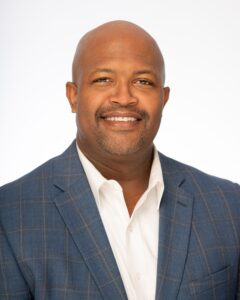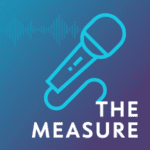By Leon T. Andrews, Jr., President and CEO
Late last year, I had an opportunity to interview a longtime friend and colleague, Angela Glover Blackwell, for the inaugural episode of our new podcast, The Measure. The Founder in Residence at PolicyLink spoke eloquently, as she always does, about racial equity and the concept of transformative solidarity. She offered:
“When I talk about transformative solidarity, what I am talking about is how we all have to be in this struggle together and not allow ourselves to become transactional when we think about who else we want to work with.”
These powerful words resonated with me as a Black leader who has been advocating for racial justice for most of my professional life. From my days at the National League of Cities, and even before, I have not trekked on this journey alone. I have been fortunate to join with many colleagues, some who have become dear friends and partners, to try to create change—not just here and there, but opportunities for lasting impact.
These words also come at a time when Equal Measure is about to embark on our next 40 years of life—a period launched by our new strategic plan that will further center racial equity and intersectionality into all aspects of our work. Transformative solidarity is the driver of our plan, as we acknowledge that we alone, in a vacuum, cannot dismantle systems that hold racial inequities in place. And we also acknowledge that this hard work cannot be done in a piecemeal, transactional way. Rather, we must join hands in partnership with our clients, colleagues, and team—working in concert to catalyze, implement, and sustain change in communities across the U.S.
What does this partnership look like?
First, this partnership means working in tandem with clients to infuse culturally responsive and equitable evaluation practices into an engagement, with a laser focus on transforming systems that have created and perpetuated longstanding structural racial inequities. It also means meeting our clients where they are, so that we can co-design strategies that are most relevant to their communities and contexts. Let me share a few examples—and I invite you to learn about others from our resources.
I think about our work with the City of Philadelphia, where we are collaborating with three organizations (Research for Action, Evident Change, and Cities United) to evaluate the impact of the City’s Anti-Violence Grantmaking program in Black and Brown communities. I also think about our journeys with the Boston Foundation, where we are learning alongside the Foundation as it transforms its grantmaking to center racial equity and close racial wealth gaps across the city; with PolicyLink, as it launches a 25-year national campaign to tear down structural, political, and cultural barriers and reshape policies “that realize the promise of equity”; and with the National Science Foundation’s INCLUDES Coordination Hub, where we are partnering with five organizations to lead a national network of more than 4,000 colleges and universities, research groups, government agencies, and employers to transform systems and broaden participation in STEM education and careers for historically excluded students. These are just a few examples of our engagements—but there are many more, and opportunities for us to explore new partnerships to have an even greater impact.
Second, this partnership means linking with organizations across the social and public sectors—in fields such as education, workforce development, youth economic opportunity, public health, and criminal justice, among others—so that we can pool our knowledge, learn from each other, and together have a more powerful impact by working in concert.
One example that I’d like to share, and which we are very excited to launch in 2023, is a series of Funder Roundtables. Our aim is to partner with local and regional funders in cities and regions with the shared goal of racial equity—sharing what we have learned from our 40 years’ experience working at the nexus of place-based systems change and racial equity, and facilitating conversations that elevate strategies and practices to inform place-based systems change investments locally, and position communities for national philanthropic and federal resources. We view these as two-way dialogues, exploring questions such as: What does an equitable region look like? What does measuring impact look like? What types of place-based systems change investments are occurring in communities, particularly low-income communities of color? How is a racial equity frame being used in the place-based systems change investments? and What opportunities, arising from the regional work, could potentially elevate strategies and practices in place-based systems change projects with a racial equity lens for other funders and communities?
And finally, this partnership means understanding, supporting, and nurturing the individual racial equity journeys of our team, so that everyone feels ready to contribute within the context of their own experiences and perspectives.
Transformative solidarity starts at home, with our team, the Equal Measure family. I can think of no more important investment, in 2023 and beyond, than making sure that everyone in our organization is equipped to embark in the fundamental work of racial equity and intersectionality. That’s why I consider our White Anti-Racist and BIPOC affinity groups and DEI book club as integral space for brave dialogue and learning. And that’s why I view our past and continuing trainings with ThirdSpace Action Lab and the Racial Equity Institute as the cornerstone of how we can adapt a sharpened organizational stance on racial equity and intersectionality that takes into account each of our journeys and forges them into a powerful collective whole.
2023 is a milestone year for Equal Measure. We’re beginning to write the book on our next 40 years, with a new strategic plan, which we plan to begin implementing this summer, as the preface. A central theme, perhaps even the most critical, is that the strength of many—our partners, clients, and team—is foundational to advancing racial equity and transforming systems. We must learn together, we must act as one, and we must stay in this fight for the long term. That is what transformative solidarity is all about. And that is the guiding light for our years ahead.

Leon T. Andrews, Jr.
As I noted above, we have launched our new podcast, The Measure. The aim of our podcast is to explore the nexus of systems change and racial equity—engaging in discussion with those who are doing that work every day, in communities across the U.S. I invite you to listen and subscribe…and don’t hesitate to tell us what you think!
